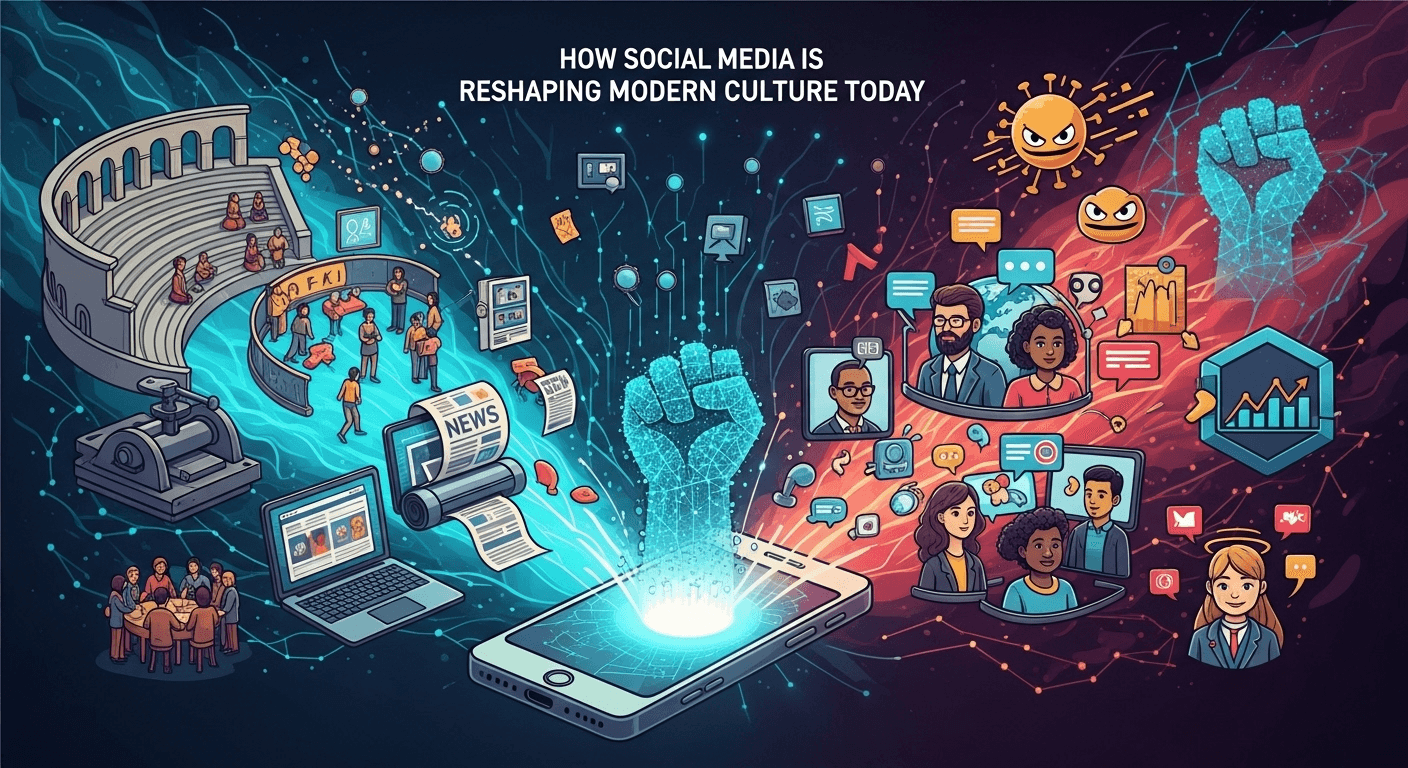In an era defined by digital connectivity, social media has evolved from a niche novelty into a pervasive force shaping the very fabric of our lives. Its platforms are no longer just virtual spaces for sharing updates with friends; they are dynamic arenas where culture is born, debated, and transformed at an unprecedented speed. From the way we communicate and perceive ourselves to the very mechanics of our political and economic systems, understanding the impact of social media on modern culture is crucial to navigating the complexities of the 21st century. This transformation is not a simple story of progress or decline but a complex interplay of connection and isolation, empowerment and manipulation, authenticity and performance. The Revolution in Communication and Social Interaction Social media has fundamentally rewired the circuitry of human communication. The traditional modes of interaction—face-to-face conversations, phone calls, and even long-form emails—have been supplemented, and in many cases replaced, by a rapid-fire exchange of likes, shares, comments, and direct messages. This shift has created a culture of immediacy, where responses are expected in minutes, not days, and conversations are often public, performed for an audience of followers. This digital dialogue has fostered a sense of a "global village," connecting individuals across geographical, cultural, and social barriers in ways that were once unimaginable. This new communication paradigm, however, comes with its own set of challenges. The absence of non-verbal cues like tone of voice, body language, and facial expressions can lead to rampant misunderstandings and a loss of nuance. Sarcasm can be misread as aggression, and silence can be interpreted as disapproval. Furthermore, the performative nature of public online communication often encourages a polished, less authentic version of ourselves, where vulnerability is edited out, and life is presented as a continuous highlight reel. The pressure to maintain this digital facade can create a disconnect between our online persona and our offline reality. The very structure of our social circles has been altered. Social media platforms encourage the accumulation of "weak ties"—acquaintances and followers with whom we share a superficial connection rather than a deep, meaningful bond. While these networks can be beneficial for information dissemination and professional networking, they can also create a false sense of community. The feeling of being 'connected' to thousands of people online can sometimes mask a profound sense of real-world loneliness, highlighting a paradox at the heart of our digitally mediated social lives. The Proliferation of Online Communities Beyond broad social networks, social media has enabled the formation of highly specialized online communities. These digital tribes coalesce around shared interests, identities, hobbies, or life experiences, providing a sense of belonging for individuals who may feel isolated in their immediate physical environment. For someone with a rare medical condition, a niche hobby like vintage fountain pen collecting, or a marginalized identity, finding a subreddit, a Facebook Group, or a dedicated Discord server can be a life-changing experience. These spaces offer validation, support, and a platform for shared knowledge. These communities act as cultural incubators, where specific norms, languages, and in-jokes develop and flourish away from the mainstream. They provide a safe haven for members to express themselves authentically among peers who understand their unique perspective. However, this same insularity can also foster groupthink and an "us vs. them" mentality, reinforcing biases and limiting exposure to differing viewpoints. The very same mechanism that creates a supportive community can, in its extreme form, contribute to the echo chambers that polarize wider society. The Evolution of Language and Memes The internet, and social media in particular, has become a powerful engine for linguistic evolution. A new digital dialect, composed of acronyms (LOL, IMHO, IYKYK), slang (stan, rizz, yeet), and a complex visual language of emojis and GIFs, has emerged. This language is not just a shorthand for faster typing; it’s a cultural signifier. Using the right slang or a trending meme demonstrates that you are “in the know,” a fluent speaker in the ongoing cultural conversation. Memes, in particular, function as modern-day cultural artifacts—easily shareable, adaptable units of information that convey complex ideas, humor, or social commentary in a single, potent image or video. This rapidly changing lexicon creates both a sense of shared identity among its users and a generational or digital divide. For those not actively participating in these online spaces, internet culture can seem like an indecipherable foreign language. The life cycle of a meme or a slang term is incredibly short; what is cutting-edge today can be cringe tomorrow. This constant flux reflects the accelerated pace of cultural trends driven by social media platforms, demanding continuous engagement to remain culturally literate in the digital age. The Transformation of Personal Identity and Self-Perception Perhaps one of the most profound impacts of social media is on our sense of self. We are no longer just passive consumers of culture; we are all active curators of our own personal brands. Our profiles on Instagram, TikTok, LinkedIn, and X (formerly Twitter) are carefully constructed digital galleries showcasing the most desirable aspects of our lives, careers, and personalities. This curated identity, often referred to as the "highlight reel," can create immense pressure to project an image of constant success, happiness, and adventure. This constant performance and curation can lead to a significant gap between our authentic selves and our online personas. The validation loop—posting content and receiving likes and positive comments—can be a powerful driver of self-esteem, but it's a fragile one. When a post underperforms or receives negative feedback, it can feel like a personal rejection. This reliance on external, metric-based validation can erode intrinsic self-worth and tie our identity to the fluctuating whims of an algorithm and an online audience. The result is a culture of comparison. As we scroll through an endless feed of curated perfection—flawless bodies, exotic vacations, career achievements, and perfect relationships—it is almost impossible not to measure our own lives against these unrealistic benchmarks. This constant social comparison is a known contributor to a host of mental health issues, including anxiety,





